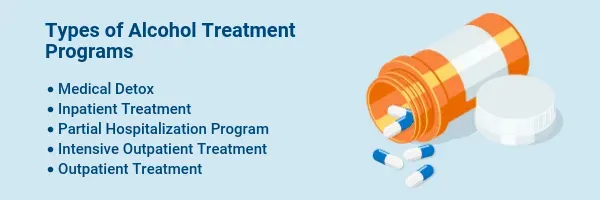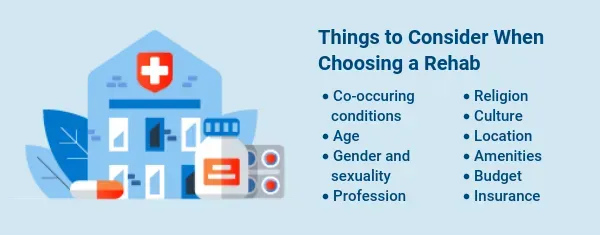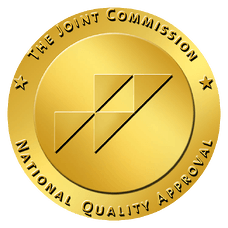Alcohol Rehab & Outpatient Therapy
Considering rehab? Selecting the right alcoholism treatment center can be a challenging task. Educate yourself on the available treatment options for alcohol addiction and abuse.
Do you or a loved one require alcoholism treatment? Are you concerned about a spouse, child, relative, or friend struggling with alcohol abuse? Alcohol rehabilitation is a vital step for those willing to address their substance use disorder.
Alcohol rehab facilities are often the primary support system for individuals fighting addiction. Across the nation, there are numerous treatment centers offering personalized programs to combat alcoholism, regardless of the length of the condition. These programs take into consideration various factors, such as age, gender, severity, and duration of the addiction. Many alcohol treatment centers also provide post-treatment care options and guidance to help individuals maintain their sobriety.
It is essential to familiarize yourself with alcoholism treatment centers, payment options, differences between inpatient and outpatient programs, finding a suitable alcohol facility, and the initial steps required to achieve sobriety and recovery. If you are seeking information to aid a friend or family member, you will also discover resources on how to support a loved one and strategies for intervention.
Complete the pre-screen form below to initiate the admission process. Our admissions team will contact you shortly.
An Overview of Alcohol Rehabilitation:
- Alcohol treatment centers offer tailored programs for alcohol addiction, taking into account factors like age, gender, and the seriousness and duration of the dependency.
- Treatment options for alcohol addiction include medical detoxification, residential and non-residential care, day programs, and online therapy.
- Specific medications such as Acamprosate, Naltrexone, and Disulfiram might be prescribed to reduce alcohol cravings, ease withdrawal symptoms, or create unpleasant effects upon alcohol consumption.
- Residential care involves staying full-time at the facility for a period ranging from days to over a year, depending on individual needs and progress in recovery.
- Non-residential care provides more flexibility, enabling individuals to stay at home while participating in treatment services.
- Intensive non-residential treatment usually entails numerous therapy sessions each week.
- Day programs are a comprehensive treatment approach where patients reside in transitional living arrangements or at home, attending therapy and medical appointments during the day.
- Medical detoxification is often the initial step in addressing alcoholism, clearing the body of alcohol and toxins under medical supervision.
- Diverse treatment modalities include traditional evidence-based programs, holistic recovery methods emphasizing overall well-being, and integrated programs for individuals with co-occurring mental health and substance use disorders.
- Insurance coverage for alcohol treatment varies based on individual circumstances.
- Identifying signs of alcoholism in a loved one can be crucial in directing them toward the necessary assistance and support.

Treatment Options and Medications for Alcoholism
While exploring the diverse treatment options available for alcoholism, you will encounter a range of care levels to assess. It is advisable to seek advice from a medical professional, substance abuse counselor, or therapist to determine the most appropriate treatment plan for yourself and your loved ones.
Alcohol Rehabilitation Programs: Inpatient vs Outpatient
When choosing a treatment program, the decision between inpatient and outpatient care options is crucial. Your choice will largely depend on your availability and financial situation. If you cannot afford to completely halt your daily life for inpatient treatment, outpatient alcohol rehab and drug treatment might be the better option if maintaining employment and other responsibilities is essential.
Inpatient or residential alcohol treatment and rehabilitation offer the most comprehensive care with continuous monitoring and clinical supervision to manage alcohol withdrawal symptoms and provide a structured living environment. Following detox, patients stay at the facility full-time, participating in therapy sessions, group counseling, medication management, holistic therapies, and other services.
The duration of alcohol rehabilitation programs varies, lasting anywhere from a few days to over a year, depending on the individual's needs and progress in recovery. Typical durations of alcohol rehab programs include:
- 30-day alcohol rehab programs
- 60-day alcohol rehab programs
- 90-day alcohol rehab programs
- Long-term alcohol rehab programs (120 days or more)
Providing a flexible level of care, outpatient alcohol treatment offers recovery services at various locations like day centers, clinics, or rehab facilities, enabling patients to remain at home. Patients can participate in counseling, therapy, 12-step programs, and other services while preserving their autonomy. This option is ideal for those who have finished an inpatient program or for medically stable individuals committed to achieving sobriety.
Known as IOP, intensive outpatient treatment involves therapy multiple days a week, offering a less intense alternative to partial programs.
Partial Hospitalization
After successfully completing a residential alcohol rehabilitation program, individuals who have established stability in their sobriety can move on to a partial hospitalization program. This comprehensive therapeutic method involves patients residing in transitional housing or their own homes, engaging in classes, counseling sessions, and medical appointments all day long. Generally, a partial hospitalization alcohol rehabilitation program lasts for approximately 2 weeks.
Medical Detox
As an essential aspect of your alcoholism treatment program, you will participate in an alcohol detox process. This critical stage involves the complete elimination of alcohol and other detrimental substances from your system within a supervised medical environment. Here, the associated risks and withdrawal symptoms are effectively managed. The committed team at the facility will support and assist you throughout the detoxification, ensuring your body is completely rid of alcohol and toxins, hence kickstarting your journey to recovery in the most optimal way. Under the guidance of healthcare professionals, detoxing at a specialized treatment facility offers the safest approach to purging alcohol from your body.
Teletherapy
If the commute to the city center or balancing your daily tasks proves difficult, participating in online teletherapy can kickstart your substance abuse treatment journey right from the comfort of your own home. Teletherapy sessions offer flexible scheduling and convenience, guaranteeing the security of your privacy. While in-person sessions may be preferable for some, teletherapy plays a vital role in expanding treatment access for those pursuing recovery. Regrettably, Wildcat Recovery does not provide this service.
Additional Options
- There are multiple paths to recovery. To find the best one for you, consider your values, mental health, personality, and cultural background. Our experienced team is here to help answer your questions and guide you towards the most suitable healing journey. Here are some available options:
- Traditional alcoholism treatment programs utilize evidence-based techniques such as psychotherapy, behavioral modification therapy, peer group counseling, nutritional counseling, and 12-step programs. The process begins with detoxification to ensure a safe and comfortable withdrawal. Then, patients participate in a structured series of therapies to help them change harmful behaviors and establish a sober lifestyle.
- Holistic recovery programs treat alcoholism as more than just a physical or psychological issue, focusing on healing the body, mind, and spirit. In addition to standard treatments like therapy and counseling, holistic programs also address spiritual and emotional needs through activities such as art therapy, meditation, yoga, and acupuncture. This approach aims to promote healing on all levels for a more fulfilling life.
- Integrated alcohol treatment programs are designed for individuals with both a substance use disorder and a mental health condition. According to the 2018 National Survey on Drug Use and Health, millions of people face the challenge of dual diagnosis. Integrated treatment, addressing both issues in a single program, is an effective way to achieve complete recovery. Expert staff at a single location offer services for substance abuse and mental health, providing comprehensive care for individuals facing these unique challenges.
Alcohol Rehab Treatment Medications
In alcohol rehabilitation programs, specific medications are utilized to support the recovery journey. These prescribed medications function by reducing alcohol cravings, easing withdrawal symptoms, or triggering negative reactions upon alcohol intake. The medications utilized include:
- Acamprosate: Designed to reduce alcohol cravings and withdrawal symptoms
- Naltrexone: Aimed at reducing the desire for alcohol
- Disulfiram: Intended to provoke discomfort such as headaches, nausea, or vomiting upon alcohol consumption.

Navigating Alcohol Rehab Treatment: A Guide to Informed Decision-Making
In the past, alcohol rehabilitation programs offered a one-size-fits-all approach to treatment, overlooking individual differences such as age, gender, mental health history, and other factors. Today, alcohol treatment facilities have evolved to cater to the needs of a diverse and varied clientele. Selecting a treatment plan now involves a more nuanced decision-making process, but conducting a thorough evaluation is likely to result in greater success and satisfaction for the individual.
Choosing the Right Path
After determining the suitable level of care and therapeutic approach, it is crucial to explore the intricacies of the treatment. Consider the individual's distinct circumstances and family dynamics, taking into consideration factors like age, gender, mental health history, and other demographic aspects.
Additional Factors to Consider:
- Types of Addictions: The program must not only address your alcohol dependence but also any secondary substances you may use. Treatment should cover co-occurring conditions like depression, personality disorders, anxiety disorders, or eating disorders.
- Age: Children and adolescents have unique needs and challenges compared to adults, given the distinctive developmental stage of the adolescent brain. Younger individuals may benefit more from personalized treatment approaches.
- Gender and Sexuality: Gender-specific programs offer a supportive environment free from societal pressures, enabling participants to focus on recovery without distractions. These programs tackle issues related to gender or sexual orientation, such as social pressures, prejudice, or violence.
- Profession and Social Standing: Engaging with diverse demographic groups in treatment can provide a leveling experience, underscoring that alcoholism is a universal disease. Establishing comfort and effective self-expression among peers can be especially advantageous. Tailored programs may address the specific stressors encountered by career professionals.
- Religion, Culture, and Values: It is crucial to select a program that aligns with your religious beliefs and personal values for effective treatment. Programs conflicting with your spirituality or cultural background are likely less successful in supporting your recovery journey.
- Location and Facilities: When researching alcohol treatment programs, the facility's location is a critical consideration. Reflect on whether proximity to home and work or distancing from daily stressors would benefit your recovery. Consider whether luxury amenities or modest yet comfortable accommodations are your top priority.
- Financial Aspects: While the cost of an alcohol rehab program should not be the primary concern, it is a significant factor for many patients. The treatment plan chosen should be compatible with your financial resources, budget, and insurance coverage.
Helping a close one struggling with alcoholism can be a challenging journey.
Coming to grips with the harsh reality of their battles can be quite distressing. At first, there might be a strong urge to turn a blind eye to the warning signs. Yet, as difficulties in personal, financial, or legal realms mount, facing the likelihood of your loved one having a substance use disorder becomes crucial. Recognizing the indicators of alcoholism not only offers a chance to repair the bond you share but can also prevent a looming tragedy.
If you suspect that your loved one may need support on their path to sobriety:
It is essential to encourage them to seek professional assessment from a doctor or therapist. Have an open conversation about alcohol abuse and reassure them of your full support in seeking additional help, such as therapy, counseling, or joining a 12-step program. Additionally, reaching out to a free alcohol hotline can offer useful information and guidance.
Even if your loved one appears to be handling their daily responsibilities at work, school, or home, there is a potential risk that the situation could worsen, leading to serious consequences like health issues, legal troubles, or accidents if left unattended. If you haven't yet talked to your loved one about this, now is the time to start that important discussion. Consult with a substance abuse counselor or family therapist for advice on ways to help your loved one access a residential alcohol treatment center or an intensive outpatient program.

